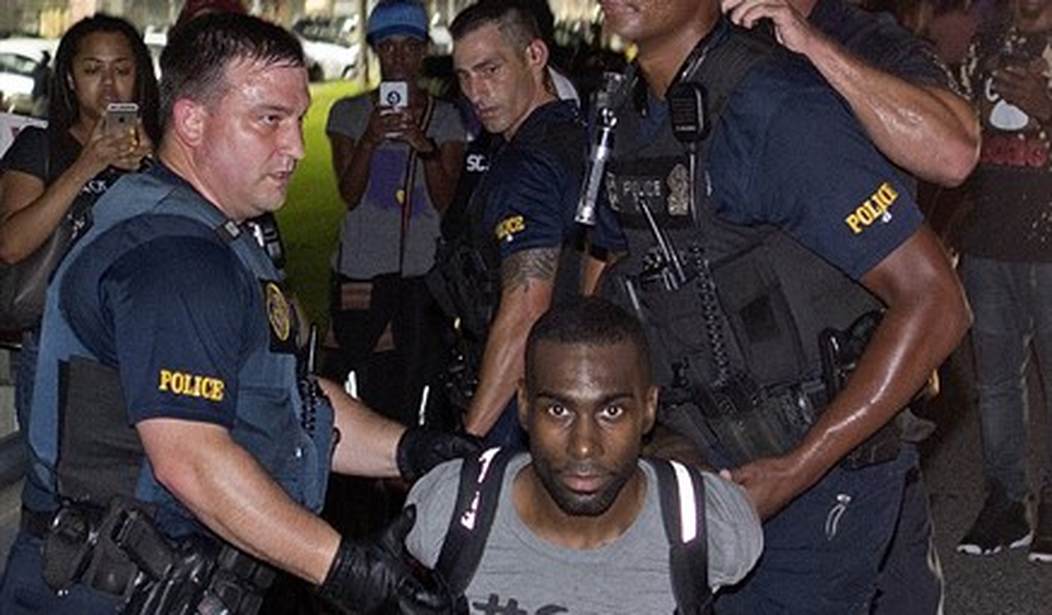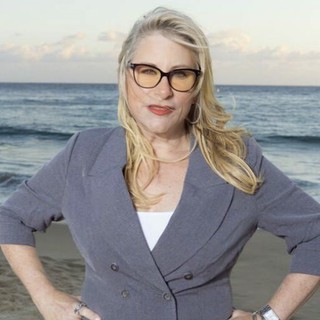Here's a federal court case you've likely never heard about. I think I know why. It's because desperate judges and leftists can't argue too loudly in support of a Black Lives Matter riot starter without somehow giving an assist to Donald Trump. It's an interesting conundrum.
While perusing the most excellent website "Scotusblog" the other day, I came across a mention of the "relist" cases pending before the U.S. Supreme Court. One is case against one of the most notorious Black Lives Matter agents provocateur and verbal fire starters, DeRay Mckesson.
"DeRay," who is such a "star" of the left that his Twitter/X handle is his first name like Beyonce or Madonna, became well known after the riots in Ferguson, Missouri, which were sparked by the death of "gentle giant" Michael Brown. Brown died at the hands of a police officer when he reached into the officer's patrol car window for his service pistol. Multiple investigations, including a federal investigation by Barack Obama "wingman" Eric Holder, could find no evidence—zip, nada— to string up the white cop. Though innocent, the cop was forced to move to protect his life and his family.
This shooting is when the "hands up, don't shoot" lie started.
Mckesson cheered it on. Mckesson, who had been living in Minneapolis and working for the government as a Teach for America instructor and part-time "activist," declared he was moving to St. Louis within a week of the Michael Brown shooting in August of 2014, according to his hagiography wiki page.
Lisa Fithian's protest training and BLM riots soon followed. DeRay was all over social media Live! From the Riots! as Ferguson's black-owned businesses were incinerated.
Shortly after the riots and DeRay's protest stardom, he sent me a love letter on Twitter.
Another year of being blocked by a tolerant leftist. pic.twitter.com/BtKEQmKb8Y
— Victoria Taft, The Adult in the Room, FITF Squad (@VictoriaTaft) February 26, 2024
But let's go back to that very frightening time period in July 2016, which gives us the context, as the fact checkers like to call it, of the BLM and Antifa riots at the time.
On July 5, 2016, Alton Sterling was shot by Baton Rouge police. The officers were later exonerated for the shooting after multiple investigations.
On July 7, 2016, a BLM sniper ambushed Dallas police officers who were acting as security for a Black Lives Matter protest over the shooting of Alton Sterling. At least 15 officers were shot; five officers died.
On July 9, 2016, DeRay Mckesson organized a protest in front of the Baton Rouge Police Department in which police officers were attacked by rioters. One was hit by a hard object and "badly hurt."
On July 17, 2016, six Baton Rouge police officers were ambushed by an armed BLM sniper. Four died.
Scotusblog reports that during the violence at the police station, a police officer, known as "John Doe" in court papers (for obvious reasons), was "badly injured." That officer sued Mckesson civilly, "alleging that he “knew or should have known … that violence would result” from the demonstration he “staged"; that he was “present during the protest” but “did nothing to calm the crowd"; "and that he had 'directed' demonstrators to protest in the street, in violation of state law prohibiting the blocking of a public highway."
In his filing in federal court, an unidentified cop who was badly injured in the July 9 riots says the violence was "reasonably foreseeable consequences of one’s own negligent, illegal, and dangerous activity that poses a risk of serious harm to others and police officers need tort protection from such illegal activity and serious harm."
So, Mckesson presided over previous riots, organized the protest, knew his activities could cause riots, and failed to calm the crowd.
In 2019, a 5th Circuit Court of Appeals panel found Mckesson liable. Later that decision would be upheld.
Mckesson appealed to the U.S. Supreme Court, where it has been in limbo for a while, arguing that the First Amendment "bars him from being held liable for the actions of others during the protest he organized."
Though they are different kinds of cases, you can see how the DeRay's and Donald Trump's cases may intersect. Trump's case and the cases of January 6 rioters, protesters, and trespassers are before the Supreme Court.
If DeRay is let off the hook for actually planning a riot due to First Amendment protections, could they do less for a president who didn't plan a riot, didn't encourage a riot and in fact did the opposite, wasn't even a participant, and wasn't present for a riot?
Could Trump be responsible for "conspiracy to obstruct an official proceeding and obstruction of an official proceeding" when he wasn't responsible for the activities of others and when they didn't even commit that offense (many of the arrested people were there well after the "official proceeding" was abandoned)?
Does this president have First Amendment protection for his speech that day?
In the court of public opinion, if DeRay is freed from his legal liability on First Amendment grounds with the BLM body count as high as it is, how could Donald Trump be found guilty with none?










Join the conversation as a VIP Member